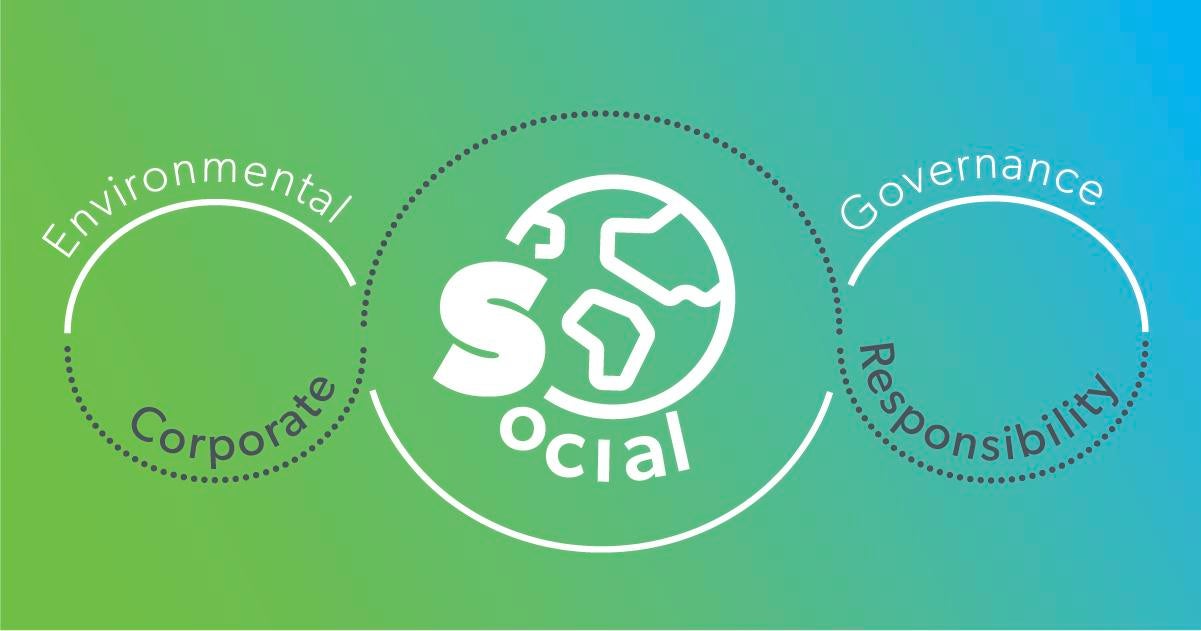Boosting Employee Morale Through Strategic Corporate Philanthropy
Boosting Employee Morale Through Strategic Corporate Philanthropy
Blog Article
Recognizing the Function of Business Philanthropy in Today's Organization Landscape
In today's affordable market, business philanthropy isn't simply a nice-to-have; it's important. You may ask yourself just how firms can balance revenue and objective efficiently. As companies adjust, they're discovering that aligning kind initiatives with their core worths can result in technology and count on. What does this mean for your own organization? Comprehending the subtleties of corporate philanthropy could improve your strategy to social duty and brand perception. Let's discover the crucial elements that drive this change.
The Development of Business Philanthropy
As services have advanced, so has their technique to philanthropy. You'll observe that today's business no more just create checks or sponsor occasions. Rather, they proactively seek to incorporate social obligation into their core methods. This shift reflects an expanding understanding that supporting communities can enhance brand name commitment and worker satisfaction.
In the past, philanthropy frequently seemed like a second thought, detached from day-to-day procedures. Currently, companies recognize that their humanitarian efforts can drive advancement and create collaborations that benefit both the company and culture. You might see firms involving in cause-related advertising, volunteering programs, and lasting practices that align with their worths.
Moreover, openness has come to be essential. Consumers anticipate to see tangible results from corporate offering, and they want to know where their cash is going. This development is improving how you see company participation in social concerns, urging you to sustain businesses that prioritize significant change.
Motivations Behind Philanthropic Campaigns
When you consider company philanthropy, it's important to acknowledge the inspirations driving these initiatives. corporate philanthropy. Companies usually commit to social obligation, boost their brand picture, and involve staff members via offering back to the community. Understanding these motivations can help you see the larger image of how philanthropy effects both services and society
Social Responsibility Dedication
Comprehending the motivations behind business philanthropy exposes a deep dedication to social obligation that goes beyond mere compliance. By aligning your company goals with social worths, you show stability and compassion, promoting trust fund among stakeholders. Inevitably, your dedication to social duty can lead to purposeful adjustment, profiting both your company and the communities you serve.
Brand Picture Improvement
Company philanthropy not only reflects a dedication to social obligation however additionally plays a crucial function in enhancing brand name picture. When you participate in charitable campaigns, you show consumers that your organization respects more than just profits. This genuine concern can substantially enhance your credibility, attracting brand-new consumers who reverberate with your worths. Your kind efforts can differentiate you from competitors, making your brand a lot more remarkable. People are a lot more most likely to support companies that contribute positively to society. Additionally, showcasing your charity work on social media sites and advertising products can better magnify your brand name's reach and appeal. Eventually, buying philanthropy can develop a solid, favorable association with your brand that promotes commitment and count on among customers.

Staff Member Engagement Incentives
Engaging workers in philanthropic initiatives can significantly increase their motivation and fulfillment at the office. When you include your group in providing back, it fosters a sense of function and belonging. Employees feel honored to be component of a company that cares, which enhances commitment and retention. Getting involved in community service or charitable tasks allows your team to bond outside the common job environment, strengthening team characteristics.
Furthermore, using motivations like volunteer time off or matching contributions can strengthen their dedication to these initiatives. By straightening your business philanthropy with staff member values, you create a culture that stresses social duty. Eventually, when workers see their efforts making an actual distinction, it sparks interest and engagement, favorably influencing overall efficiency and firm success.
The Influence of Company Philanthropy on Brand Name Online Reputation
While several variables influence a brand name's reputation, business philanthropy sticks out as a powerful tool for forming public understanding. When you engage in humanitarian tasks, you signal to customers that your company appreciates greater than just profits. This authentic dedication to social causes can enhance your brand's photo and foster commitment amongst consumers who share comparable values.
Consumers today are a lot more aware of the business they sustain. They frequently research a brand name's philanthropic efforts prior to making acquiring choices - corporate philanthropy. By proactively participating in neighborhood initiatives or sustaining charitable click this site organizations, you not only add favorably to culture but also place your brand name as a liable player in the marketplace
In addition, corporate philanthropy can bring about increased word-of-mouth advertising, as completely satisfied clients are likely to recommend brand names they admire. Ultimately, a solid humanitarian visibility can strengthen your online reputation, making your brand stand apart in a competitive landscape.
Lining Up Philanthropic Initiatives With Company Goals
Aligning your kind efforts with service goals isn't simply a strategic step; it's vital for creating a purposeful effect. When your charitable campaigns mirror your core objective, you magnify both your social duty and your brand name's identification. Beginning by identifying your business's values and objectives, after that seek causes that resonate with them. This placement not just boosts your reputation but additionally promotes loyalty amongst consumers and stakeholders who share those worths.
Think about developing collaborations with nonprofits that align with your sector. This partnership can develop harmonies that profit both your organization and the community. Additionally, gauge the end results of your campaigns to validate they add to your overall objectives. By doing so, you'll not only enhance your company image but additionally drive worker involvement and innovation. Ultimately, when philanthropy comes to be part of your organization strategy, you produce a win-win circumstance that benefits every person involved.
Involving Staff Members With Business Giving
When workers really feel a genuine link to your firm's humanitarian efforts, their engagement and motivation can greatly raise. By involving them in corporate offering initiatives, you not just cultivate a feeling of belonging however likewise equip them to make a difference. Motivate your group to take part in volunteer opportunities or recommend reasons they're passionate about.

Developing a matching present program can additionally improve their involvement, as it shows you value their contributions. corporate philanthropy. Recognizing and celebrating these efforts cultivates a culture of providing, making workers feel appreciated and respected
In addition, sharing stories of influence can inspire your team and reinforce their commitment to the business's goal. When staff members see exactly how their efforts translate right into actual adjustment, they're more probable to really feel aligned with your company's objectives. Ultimately, involving workers through business providing not just improves spirits but also boosts loyalty and productivity within the work environment.
Gauging the Efficiency of Philanthropic Programs
Just how do you know if your firm's philanthropic programs are making an actual impact? Beginning by great site setting clear, measurable objectives. Define what success appears like-- whether it's funds elevated, lives transformed, or community renovation. Next, make use of data to examine progression. Collect feedback from beneficiaries, employees, and stakeholders to understand the programs' effectiveness.
Studies or meetings can give useful understandings into how your initiatives are viewed and their concrete effects. In addition, think about making use of crucial performance signs (KPIs) to track end results with time.
Examine both qualitative and quantitative data to repaint a complete picture. Don't neglect to share your findings with your group and the area; openness promotes count on and interaction.

Future Fads in Corporate Philanthropy
As companies navigate an increasingly complex social landscape, company philanthropy is developing to fulfill brand-new challenges and assumptions. You'll observe a shift in the direction of even more strategic offering, where business align their kind initiatives with their core values and organization objectives. This not just enhances brand name commitment but also drives staff member engagement, as groups really feel happy to support reasons they appreciate.
An additional pattern is the rise of joint philanthropy. You'll see organizations partnering with nonprofits and other organizations to develop greater impact, pooling sources and proficiency for a lot more efficient remedies. In addition, innovation will play an essential duty, with information analytics assisting you gauge end results and refine approaches in real-time.
Finally, anticipate an emphasis on sustainability, as companies significantly prioritize ecological and social administration. By welcoming these patterns, you can assure your corporate philanthropy remains relevant and impactful in the years to come.
Often Asked Questions
How Do Companies Select the Causes They Support?
Companies usually evaluate their core worths, area requirements, and worker interests when selecting reasons to sustain. They're most likely to select campaigns that align with their mission and resonate with stakeholders for maximum influence and interaction.
What Prevail Risks in Corporate Philanthropy?
In company philanthropy, common risks consist of imbalance with business values, absence of worker participation, and inadequate measurement of impact. Avoiding these blunders assists guarantee your campaigns resonate with both your team and the area.
Exactly How Can Small Services Participate In Philanthropy?
You can take part in philanthropy by partnering with regional charities, giving away a portion of earnings, organizing neighborhood events, and motivating staff member volunteerism. These activities not only assist others but also enhance your business's area ties.
Exist Tax Obligation Advantages Connected With Business Providing?
Yes, there're tax obligation advantages connected with corporate providing. You can often deduct contributions from your gross income, which can minimize your general tax responsibility. It's a wise method to support reasons while benefiting your business monetarily.
Just How Do Consumers Perceive Brands That Engage in Philanthropy?
Customers often see brands that engage in philanthropy positively. You'll discover they value companies that return, fostering loyalty and depend on. This link can enhance your brand's track record and increase client engagement considerably.
Conclusion
In today's company landscape, business philanthropy isn't just a nice-to-have; it's crucial. By aligning your kind efforts with your company goals, you not only boost your brand's credibility but also engage your staff members and attract socially aware consumers.
Report this page